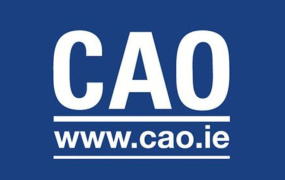Psychology
About
The Department of Psychology at Mary Immaculate College is committed to providing outstanding education at undergraduate and postgraduate levels and conducting excellent research. Our dedicated members of staff are all qualified to the highest level in their subject and are research active. Moreover, they are vastly experienced at teaching and place great emphasis on the needs and experience of students.
Psychology at Mary Immaculate College can be studied at undergraduate and postgraduate level.
The Department of Psychology offers the following three undergraduate programmes:
- BSc Psychology programme - a single honours psychology programme that focuses on applications of psychology
- Psychology in the Bachelor of Arts programme - a joint honours programme that allows students to combine psychology with another arts subject.
- B Ed in Education and Psychology programme - a unique dual undergraduate degree in psychology and education.
Each of the programmes provides a different pathway into psychology and all three programmes are accredited by the Psychological Society of Ireland (PSI). These programmes also include work placement/s to gain real world employability skills alongside core psychology content.
This blend of scientific theory and real-world application gives students a chance to develop incredibly valuable critical thinking, problem-solving and communication skills.
Psychology can also be studied at postgraduate level within the Department of Psychology at MIC. We regularly advertise funded positions for those seeking to study for a research master’s degree or a doctoral level qualification.

For all the latest in research and news from the Department of Psychology at MIC.
Visit MIC InsightsSubject Overview
Undergraduate
Undergraduate psychology at Mary Immaculate College is studied either as a single honours degree programme within the BSc Psychology programme or alongside a second subject; either as part of the BA Liberal Arts programme or the B Ed in Education and Psychology programme. The core psychology content of all three programmes is similar and meets all the standards for accreditation with the Psychological Society of Ireland. Each programme then additionally has its own specialism, be that, applications in psychology in the case of the BSc Psychology programme, education in the case of the BEd Education and Psychology or your choice of arts subjects within the BA Psychology programme.
Below are some examples of modules we offer within our undergraduate Psychology provision at MIC.
| Core Modules |
|---|
| Individual and Developmental Influences on Behaviour |
| Social Psychology |
| Introduction to Research |
| Cognitive Psychology |
| Psychology and Social Justice |
| Lifespan Development |
| Personality and Individual Differences |
| Human Behaviour and Mental Health |
| Biological Basis of Behaviour |
| Work and Organisational Psychology |
| Design and Ethical Evaluation of Psychological Research |
| Skills for Study and Work |
| Critical Perspectives on Research |
| Dissertation in Psychology |
| Controversies in Psychology |
| Elective Modules |
|---|
| Advanced Issues in Educational Psychology |
| The Psychology of Motivation |
| Development, Difference and Diversity |
| Health Psychology |
| Bodies and Behaviour in Context |
| Organisational Psychology |
| Developmental Psychology |
Postgraduate
Postgraduate research qualifications offered in Psychology at MIC include a Master’s degree by Research and PhD study. If you are interested in pursuing these routes at MIC the best place to start is to read individual staff research profiles and make an initial informal enquiry with the member of staff who matches your research interests.
Funded opportunities are available through the MIC Doctoral Award, MIC Doctoral Studentship Award, MIC Postgraduate Studentship Award, and Departmental Assistantships. All of these opportunities carry a stipend and full fee waiver. For more information, contact a member of staff with whom your proposed research aligns.
We are currently seeking applications for Departmental Assistantships.
The MIC Departmental Assistantship Award is offered to postgraduate students who are prepared to participate in departmental and college activities (tutorial/seminar/laboratory/field work/course work marking etc.) for a maximum of 108 hours in the academic year. An assistantship entitles the student to a fee waiver and a subsistence bursary of €6,900. For informal enquiries, please contact Psychology@mic.ul.ie.
Staff
Research
Staff in the Department of Psychology at Mary Immaculate College are engaged in a variety of research projects aimed at developing knowledge and having a real-world impact on a national and international scale. Staff regularly publish their work in peer-reviewed journals, present at international conferences, and inform practice in applied areas. Generally, our research expertise falls under the areas of personality, stress, and health, education, community and social psychology, and the work of the Cognition, Development, and Learning Lab.
Meet the Researcher

John O’Neil is studying for his PhD in the Department of Psychology at MIC.
John tells us about his really interesting research topic, which delves into the concept of vulnerability in professional Football. His study aims to enhance our understanding of vulnerability across all roles in the football landscape, from players to directors and various departments within.
John also talks about what he enjoys most when undertaking his research, what he likes about supervising students and his advice for anyone considering taking up a postgraduate programme by research.
Before coming to MIC to undertake my PhD, I completed a Sports & Exercise Science Degree, and a Master in Sport Psychology at the University of Limerick. I always wanted to do sports psychology and apply it to professional football. One of the main learning pillars of a Sports & Exercise Science degree is psychology, and during this time I created an opportunity to do my thesis on understanding Player Welfare in Professional Football. This allowed me to understand what it really meant to be a professional athlete and coach. It also taught me the psychology and continuous learning needed to support athletes on and off the field. For my Masters thesis, I was able to research the learning behind the psychology within Athletic Bilbao who are a professional football club in the Basque Country of Spain. Since 1912, it has adhered to a policy of only developing players from the Basque Country to play for them. I discovered how psychology was developed in the club towards developing home-grown players, which became known as La Mirada (“The Gaze” in Spanish). A key perspective of how La Mirada developed over time was to address coaches’ mindsets before those of the players, especially because coaches often felt that their learning was going to be an upward trajectory by relying on what had given them results in other clubs. Despite the self-imposed limitation of this unwritten rule, Athletic Bilbao is one of only three clubs to have never been relegated from La Liga, along with Real Madrid and Barcelona.
For my PhD, I am doing a psychology research project that delves into the concept of vulnerability in professional football. This study aims to enhance our understanding of vulnerability across all roles in the football landscape, from players to directors and various departments. We want to understand how can vulnerability serve as a compass for our learning in professional football. By understanding it through (𝐢) our own vulnerability (𝐢𝐢) how vulnerability may be different between and within departments of a club (𝐢𝐢𝐢) how vulnerability may impact senior management/leadership at the board level (𝐢𝐯) how vulnerability may impact sport psychology. We have developed a psychological framework around these phases and now we are building a psychometric scale to measure and understand how and when we can use our vulnerability throughout all the roles and people who make up a professional club.
I like the fact that we started with very little research in this area of psychology but now we have developed it to a level where we feel our research can make a positive impact practically and also in academia. It has allowed me to connect, share, learn and discuss this research with some of the most influential football clubs, associations and federations in the world like the Premier League, La Liga and FIFA. I also really enjoy that in MIC you get to know and share with other researchers from different departments with different interests. In many ways, we might have a different research topic but we are all connected by the journey of what it means to be a researcher. I have found that when sharing my research with my department and others, people can often give you knowledge that can have a positive impact on your whole research area and vice versa. I have been able to show and connect my research into vulnerability with other researchers and department colleagues in MIC regarding how we all at times feel vulnerable both personally and professionally. I am also very grateful for all the support I get from my Head of Department, Niamh Stack, and colleagues who don’t just support you but encourage you both in the good times and especially at times when challenges are encountered.
For the last three years, I have been the module leader of the Sport Psychology Module for Third Year BAs and Fourth Year B Eds. MIC has allowed me to connect with students in a way where I still know what it is to be a student. However, now as a module leader, I can feel what the students are going through at different stages throughout the term. You gain experience with students regarding when is the right time to talk and more importantly, when is the right time to just listen. Doing so without always feeling the need to offer advice but just knowing that they can come to you for advice. This is what can promote even more autonomy and life skills which can be even more beneficial to their learning both in and out of the lecture room.
I would encourage anyone who is thinking about taking up a postgraduate programme by research to try and focus on a topic and area that you are really interested in and don’t undertake a programme for the sake of it. It’s often the interest that keeps the energy and commitment that is needed going. Don’t compare yourself with others because everyone’s postgraduate programme will have different pathways, but do be sure to stop and say hello and ask other postgrads how they are doing along the way. Enjoy your achievements as well no matter how big or small and keep interested in your research and progress. Remain humble along the way because it’s often the connections and people that you meet during the programme that will be your biggest achievement, support, help and reference for the years ahead, long after the last full stop has been typed! Keep the communication with your supervisors strong and positive. They only ever want to help you.
I tell many people that MIC has an exceptional support and guidance team with Julianne Stack and Rebecca Breen from the Research & Graduate School, and to really make the most of the opportunities that they create every single year. I have more full stops to go yet on my PhD journey but at the end, I know it will be a time that I will always be super proud of and much of that is because of the community spirit that you will always find in MIC.
MIC’s Meet the Researcher series focuses on the breadth of research output from MIC academics and student researchers.
Research Areas & Associated Staff
Cardiovascular responses to stress is the focus of two of our researchers. Dr Niamh Higgins examines attention towards or away from threat with an emphasis on physiological response.
This also includes personality influences. Similarly, Dr Paul Mulcahy is interested in the reactivity to stress in different individuals and the impact on sleep deprivation. Dr Higgins is also currently active in research regarding youth mental health and individuals working with musculoskeletal pain.
Dr Marc Scully leads research on individual’s identification with a place, particularly related to migration. Dr Scully is highly active in discourse surrounding Irish diaspora issues.
Dr Marek McGann aids in the management of a national forum project, the Teaching Research Expertise Exchange (T-REX), which aims to build a digital bridge between academic and professional practice. This fits with Dr McGann’s ongoing interest in the practice of science and implementation.
Prof Niamh Stack research is predominantly in the areas of gifted education, ecopsychology and community psychology.
Researchers in the Cognition, Development and Learning Lab in the Department of Psychology, led by Dr Suzanne Egan, study the factors that impact on how we think, reason, learn, solve problems and interact with others, with a special focus on early experiences. Examining data from children, parents, preschool educators, and teachers, we aim to understand the interactions and interdependencies between people's physical and social environments and their cognitive and socioemotional development. For current information about research from the lab please check the Department of Psychology blog or Dr Egan’s profile page.
These are some of the research questions and topics we focus on:
- What level of outdoor play are Irish children engaged in?
- How much of an impact does reading to infants have for later cognitive development?
- What sorts of different activities and games in the home learning environment influence socio-emotional development?
- What effect does screen use have on development during early childhood?

MIC’s Meet the Researcher series focuses on the breadth of research output from MIC academics and student researchers.
For More Visit MIC InsightsPostgraduate Opportunities
Departmental Assistantships 2025
General Information
The Department of Psychology, Mary Immaculate College, is now accepting applications for a funded Departmental Assistantships in Psychology, beginning in September 2025.
The successful applicant will work under the supervision of a member of staff in the Department of Psychology. They will be provided with a fee waiver (two years for a research MA student; four years for a PhD student) and an annual stipend of €6,900 (two years for a research MA student; three years for a PhD student). The applicant will undertake tutorial or other departmental work, to a maximum of 120 hours per year.
General information on the Departmental Assistantship funding scheme is available here.
Funded MA in Psychology
An opportunity exists for funded postgraduate research in the Department of Psychology, Mary Immaculate College, Limerick.
Degree: MA in Psychology (by Research)*
Duration: 18-24 months
Start date: September 2025 (may be flexible)
Requirements: Applicants must have (or expect to obtain by September 2025) at least a 2.1 undergraduate degree in psychology.
Funding: €12,278 per annum (includes EU fee waiver of €5,378 and annual stipend of €6,900)
Successful applicants for postgraduate study will be eligible to apply for an MIC Departmental Assistantship. These are offered to postgraduate students who are prepared to participate in departmental activities (e.g., tutorials) for a maximum of 120 hours in the academic year (i.e., approximately 5 hours per week during the teaching semesters). An Assistantship entitles the student to a fee waiver and a subsistence bursary of €6,900 for work done in the Department.
Please see below for MA in Psychology project descriptions, including details of the staff member who you should contact by email in the first instance to find out more about the project and application process.
Project Title
Cardiovascular stress and wellbeing
Project Description
The lab-based project explores how the cardiovascular system responds to stress, and in particular the factors that potentially buffer against harmful patterns of responding. The project has broad scope for factors to consider, but specific areas of interest include personality, social support, or aesthetic experiences.
Staff Contact Details
Dr Paul Mulcahy – Paul.Mulcahy@mic.ul.ie
Project Title
Being Online: How People Behave in Online Places
Project Description
The theory of behaviour settings describes how places play a huge role in shaping people’s behaviour and experience. This project will investigate to what extent this theory can be extended to apply to online places and online social settings.
Staff Contact Details
Dr Marek McGann – Marek.McGann@mic.ul.ie
Project Title
Life skills development with higher education
Project Description
This project will look at how students develop their life skills (e.g., teamwork, communication, leadership) at university. It is envisaged that this qualitative research will involve interviewing both students, academic staff and other stakeholders.
Staff Contact Details
Dr Lorcan Cronin – Lorcan.Cronin@mic.ul.ie
Project Title
Transnational families in times of uncertainty
Project Description
This project will examine how families that exist across international borders maintain relational identities at times of social and political uncertainty. Initially, you will work with a large pre-existing dataset drawn from qualitative survey research. There may then be the opportunity to develop a related project of your own.
Staff Contact Details
Dr Marc Scully – Marc.Scully@mic.ul.ie
For additional informal enquiries please contact:
Professor Niamh Stack, Dept. of Psychology, Mary Immaculate College, Limerick.
E-mail: Niamh.Stack@mic.ul.ie
*After 12 months it may be possible to transfer to a PhD in Psychology by research. For more information please visit https://www.mic.ul.ie/faculty-of-arts/department/psychology?index=4
Application Process - Part One
To be considered for a Departmental Assistantship, applicants should identify a research topic and supervisor, and complete a research postgraduate application. Information on this process is available here.
It is essential that potential applicants allow sufficient time to prepare an application in conjunction with a potential supervisor. Further information on the research interests of faculty in the Department of Psychology is available here.
We are particularly welcoming applications this year to work with the supervisors below in the following areas:
Dr Paul Mulcahy/Dr Niamh Higgins: Social support reciprocity and cardiovascular reactivity to stress - The proposed PhD project would investigate the relationship between a reciprocity-oriented framework of social support and acute cardiovascular stress reactivity, and explore how other individual difference variables such as personality factors may moderate this relationship.
Dr. Marek McGann. Embodied cognitive science and online behaviour. The importance of places (behaviour settings) in the organisation of behaviour and experience. Evaluation of the theory of behaviour settings as a means to describe and explain behaviour in online social settings.
Dr Lorcan Cronin: life skills development in youth sport, PE, dance, or higher education; life skills as a way of combatting depression, anxiety and stress; sport and exercise psychology.
Dr Marc Scully: Social psychological approaches to migration, transnationalism and diaspora. Discourses of local and national identity. Identities and pro-environmental behaviour – the focus within these topics will preferably be on qualitative methodologies.
Prof. Niamh Stack: Ecopsychology, outdoor learning, gifted development, developmental impact of growing up with congenital heart disease, community psychology – the focus within these topics will preferably be on qualitative methodologies.
Application Process - Part Two
The applicant should complete a Departmental Assistantship (Psychology) application.
Selection Criteria
- Academic record at undergraduate level;
- Academic record at postgraduate level (if appropriate);
- Research M.A. or Ph.D. project;
- Aptitude for teaching undergraduate students in tutorials.
Application Process - Part Three
Applicants should submit the following documents in hard copy or by email to the Head of Department, Prof. Niamh Stack. Email: Niamh.Stack@mic.ul.ie.
- Academic transcript(s)
- A copy of the research MA or PhD application
- A short statement indicating aptitude for teaching undergraduate psychology students in tutorials (maximum 200 words)
The deadline for applications is 5pm May 30th, 2025.
Selection Process
The department will convene a Selection Committee consisting of the Head of Department (chair) and at least two other members of staff. The committee will assess applications on the basis of the selection criteria and make recommendation(s) for approval via the Research and Graduate School to the Executive Team. The Head of Department will notify applicants of the outcome of the selection process as soon as possible.
Late Applications
Late applications will be welcomed if Department Assistantships in the Department of Psychology remain unfilled after the deadline. Please contact Prof. Niamh Stack. Email: Niamh.Stack@mic.ul.ie.
Contact Information
Please direct general queries to:
Prof. Niamh Stack, Head of Department
Email: Niamh.Stack@mic.ul.ie
Resources
Staff and students in the Department of Psychology have access to a range of excellent facilities, equipment and technical support.
We have a Psychological Test Library, which includes intelligence and personality tests, and a dedicated Psychology Computer Laboratory, which features high performance networked PCs, specialist software, response pads and more.
We also have a suite of individual and small group observation and testing rooms. These include a Cognition and Perception Laboratory equipped with two Eye Trackers (Tobii Pro Fusion and SMI RED 250) and a Psychophysiology Laboratory equipped with blood pressure monitors and PowerLab systems (which can be used to measure EEG, EOG, ECG and GSR).
Our Cardiovascular Psychophysiology Laboratory has a Finometer PRO which allows for accurate non-invasive beat-to-beat blood pressure monitoring.
- About
- Subject Overview
- Staff
- Research
- Postgraduate Opportunities
- Resources
- Visit MIC Insights











